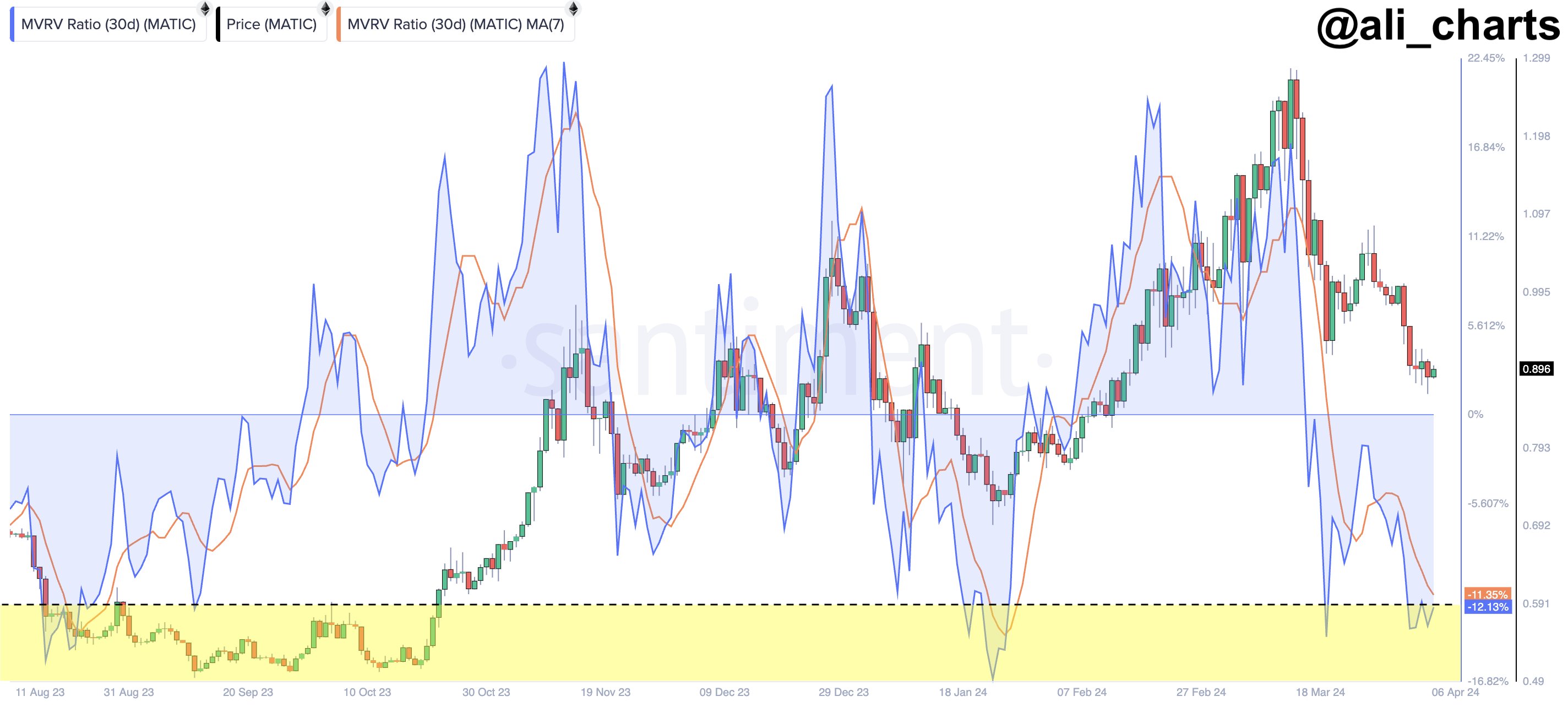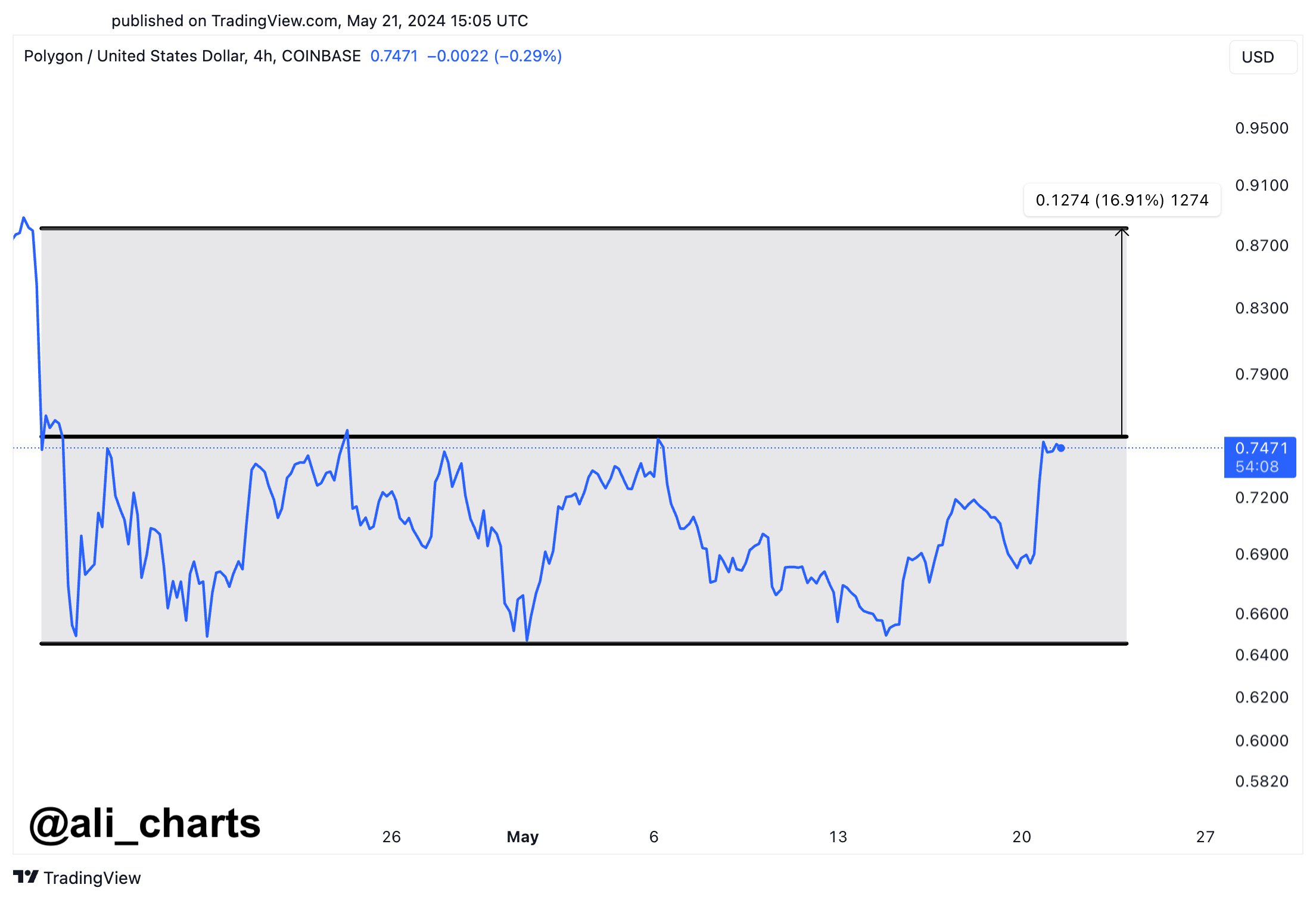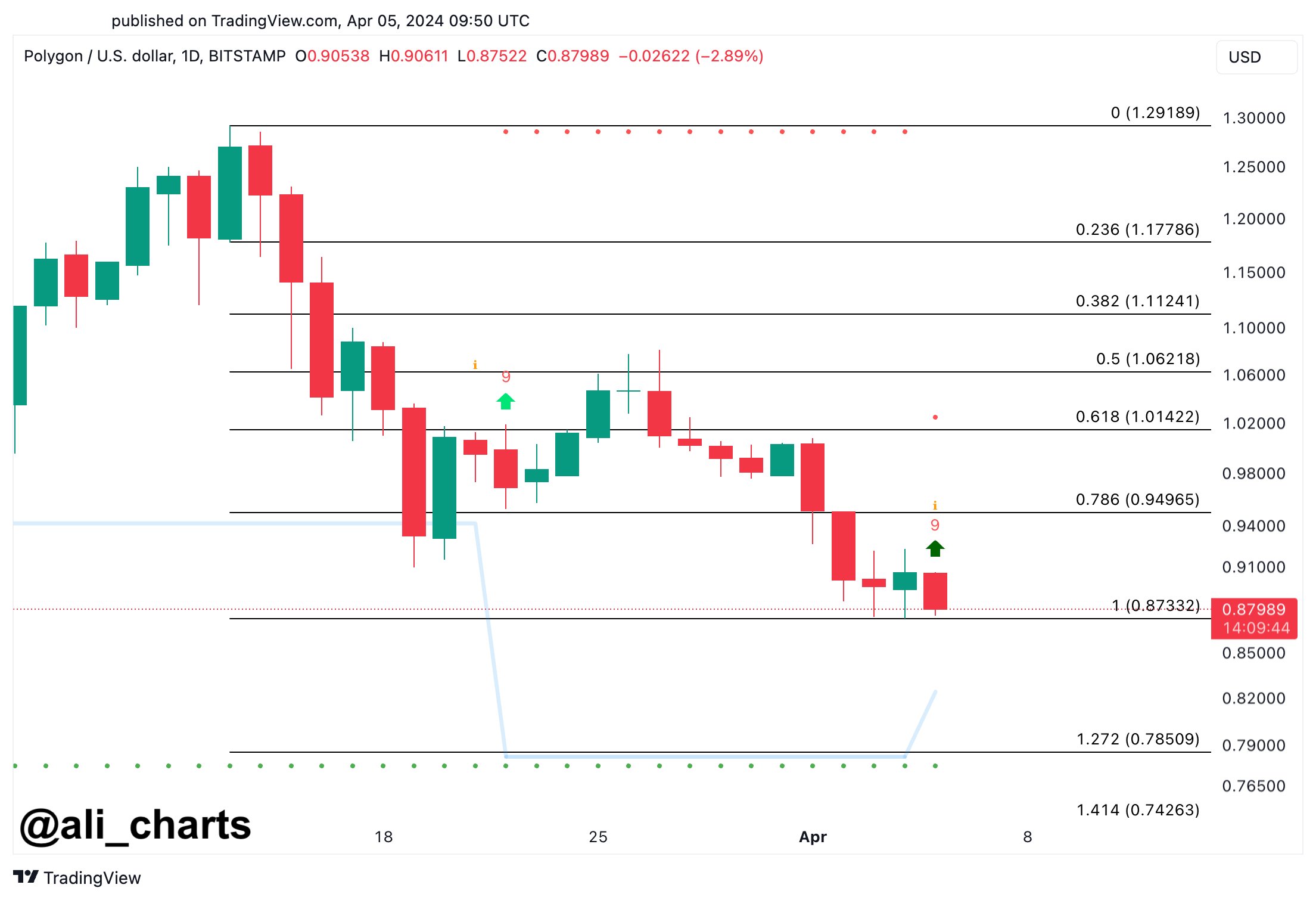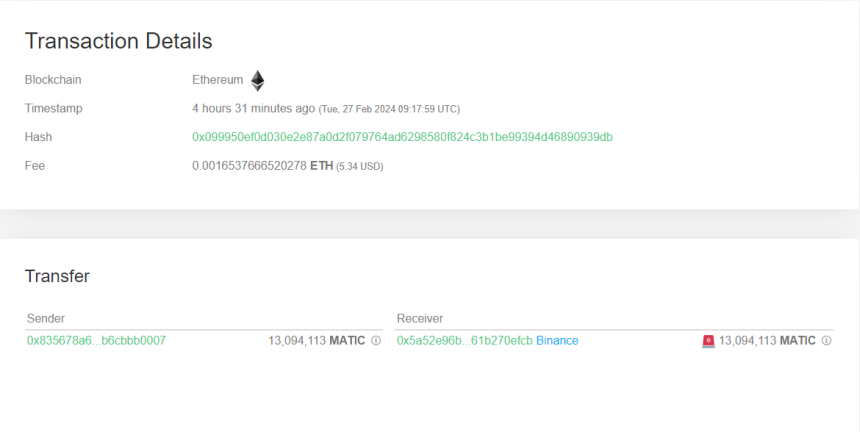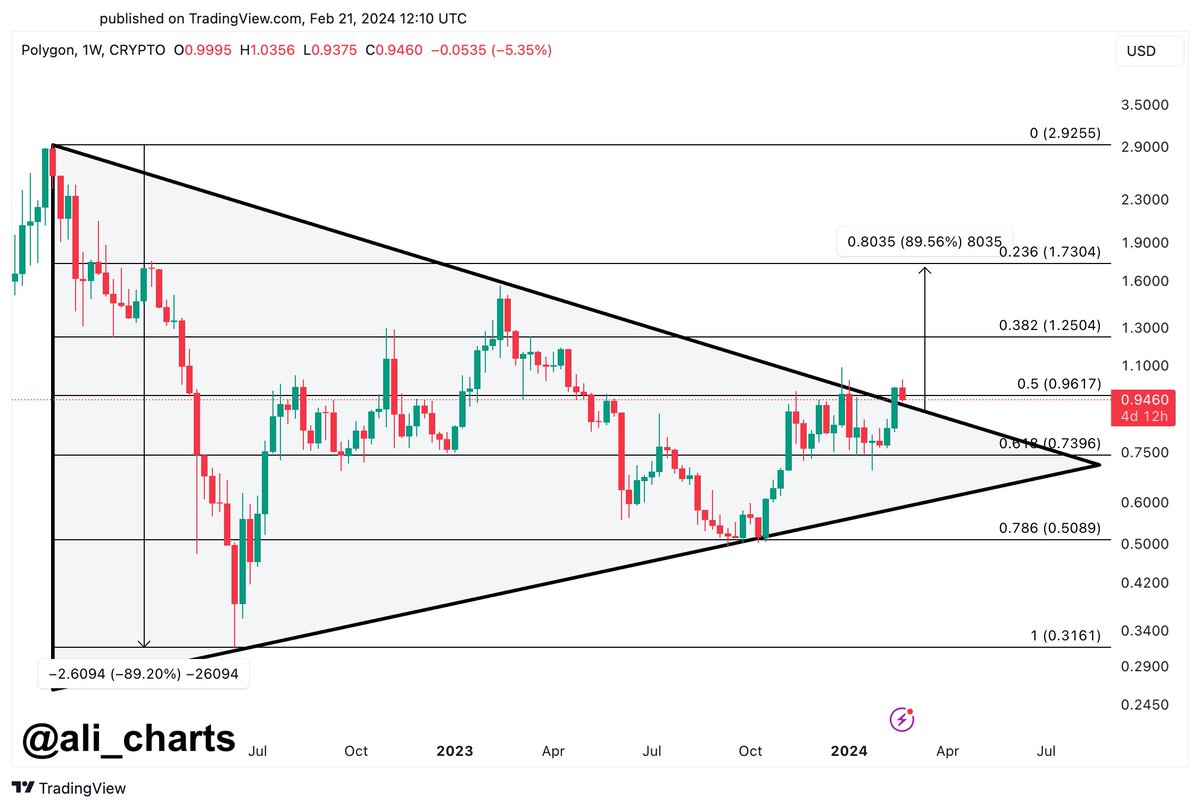Polygon (MATIC) In Buy Zone That Earlier Led To 112% & 87% Surges
On-chain data shows Polygon (MATIC) is currently inside the same buy zone that earlier led to rallies of around 112% and 87% for the asset.
Polygon 30-Day MVRV Ratio Is Significantly Negative Currently
As pointed out by analyst Ali in a post on X, MATIC is showing a historically bullish pattern in its 30-day MVRV ratio. The “Market Value to Realized Value (MVRV) ratio” here refers to an on-chain indicator that keeps track of the ratio between the Polygon market cap and realized cap.
The realized cap is a capitalization model that calculates the total valuation of the cryptocurrency by assuming that the “real” value of any coin in circulation isn’t the current MATIC spot price, but rather the price at which it was last transferred on the blockchain.
Considering that the last movement of any coin was the last time it changed hands, the price at its time would serve as its current cost basis. As such, the realized cap essentially sums up the cost basis of every coin in circulation.
Put another way, the realized cap is a measure of the total amount of capital the investors have put into the asset. Since the MVRV ratio compares the value the holders are carrying right now (that is, the market cap) against this initial investment, its value can tell us about the profit-loss status of the market as a whole.
Now, here is a chart that shows the trend in the 30-day version of the Polygon MVRV ratio, which tells us about the profit-loss balance specifically for the investors who bought within the past month:
In the graph, the 30-day MVRV ratio has been displayed in terms of a percentage, with the 0% mark aligning with the scenario where the market cap and realized cap are equal.
It’s visible that the indicator has registered some steep drawdown for Polygon recently and has dipped deep inside the negative territory. This would imply that the investors who bought within the last 30 days have entered into notable losses.
The latest levels of the metric have been low enough to qualify for a zone that has provided profitable buying opportunities in the past. “Historically, the last two entries into this zone saw MATIC surge by 112% and 87%,” notes the analyst.
A possible explanation behind this pattern could be the fact that as these 30-day investors enter into losses, the selling pressure in the market goes down as there aren’t many profit-takers left. This naturally facilitates for bottoms to take place.
It now remains to be seen whether this past pattern would repeat for Polygon this time as well, and if it does, whether any resulting surge would be of a similar scale or not.
MATIC Price
Polygon has registered a 3% surge in the past day, with its price now floating above $0.93. Given the timing, it’s possible the MVRV ratio buy signal may already be in effect.
